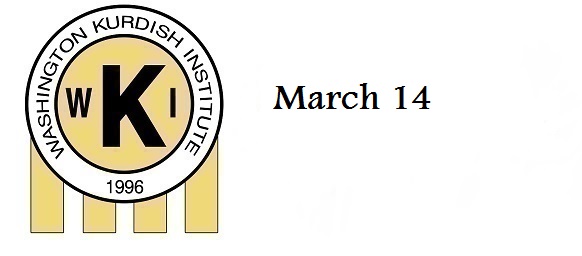862
Iran
- Asma Jahangir, the Special Rapporteur on the situation of human rights in Iran, submitted a report to the Human Rights Council about the Iranian regime’s persecutions against the people. The report said: “almost one fifth of the executions that took place in Iran in 2016 concerned Kurdish prisoners.” The report also shows the regime’s policies against the members of the Kurdish political parties: “Kurdish political prisoners are said to represent almost half of the total number of political prisoners in Iran.” The report addresses the killings of border workers (Kolber).
Iraq
- The Special Envoy of the special presidential envoy to the anti-ISIS coalition Brett McGurk visited the Kurdistan region and met with Massoud Barzani the President of the Kurdistan region of Iraq. In the meeting, the two sides changed the recent updates about the ongoing fight against ISIS. The head of the department of foreign relations in the Kurdistan Region described the meeting as “productive.” The U.S. ambassador to Iraq participated in the meeting.
- The Deputy Prime Minister of the Kurdistan Regional Government (KRG) announced that the registration of KRG wage-earners reached one million. The KRG launched a biometric registration system for its employees to stop those who are paid more than one salary.
Syria
- On March 13, 2017, The Manbij local council formed the city’s administration which contained 70% Arabs, 15% Kurds, 15% Turkmen, Circassians, Armenian and Chechen. After the liberation from ISIS, the city has been protected by the Manbij Military Council as part of the U.S.-backed SDF forces.
- The “Wrath of Euphrates” campaign continued by the U.S.-backed Syrian Democratic Forces (SDF). The SDF cleared several areas from ISIS. On Thursday the SDF liberated Jazera village in the countryside of Raqqa near Deir ez-Zor. Later on Sunday the SDF continued advancing on the eastern front and liberated Kas Ajeyl 48 km southeast of Raqqa.
- The United Nations Syria Commission released a report denying allegations of ethnic cleansing occurred by the SDF and YPG against Arab residents in Manbij and its countryside. “The presence of concealed bombs laid by ISIL justifies ordering the temporary displacement of civilians from the Tishreen Dam and Manbij areas, but only for such time required for SDF troops to take steps necessary to safeguard the security of civilians. Moreover, SDF authorities bore the responsibility to ensure that any temporary displacements were carried out in satisfactory conditions of shelter, hygiene, health, safety and nutrition, and that members of the same family were not separated. Displaced individuals did not receive adequate assistance from SDF or YPG authorities in this regard,” said the report. The People’s Defense Units (YPG) spokesperson Redur Khalil said, “The safety of civilians is a humanitarian and national responsibility for the YPG and SDF forces.” “The smear campaign against the YPG-YPJ forces has been wasted after the release of the UN report,” said Khalil.
- The Democratic Union Party (PYD) commemorated the anniversary of the Kurdish uprising against the regime in Syria in 2004. In a statement, the PYD said: “13 years ago, Qamishlo Uprising emerged embodied in the people’s will and awareness which revolted against the despotic regime. Our people have taken to streets starting from Derik to Qamishlo to Kobani reaching Afrin, and Aleppo and Damascus. We commemorate this uprising meanwhile our Kurdish people are witnessing a societal revolution which aims at founding a just democratic system and a new leap towards solving Syrian crises.”
Turkey
- On March 10, 2017, the United Nations Human Rights Organization released a report about Turkey’s military campaigns in the Kurdish region from July 2015 to December 2016 which has resulted in killings, destruction, displacement and other serious human rights violations. In the Executive Summary, the report said, “2,000 people were reportedly killed in the context of security operations in South-East Turkey,” approximately 1,200 of whom were local residents and almost 800 of whom were members of the security forces. According to the report, “unlawful deaths” and “excessive use of force (such as shelling densely populated areas with heavy artillery and tanks)” have occurred. Click here to access the report.
- On March 9, the Turkish Supreme Court of Appeals made a decision to cancel the membership of People’s Democratic Party (HDP) Co-chair Ms. Figen Yuksekdag. Yuksekdag will no longer be holding the HDP position as Co-chair in addition to that all her duty records were removed from the registry of the Supreme Court of Appeal. The HDP denounced the court decision and described it as “unlawful act .“ In a statement, the HDP said: ”The higher judicial bodies in Turkey, unfortunately, have become, in their entirety, tools of repression and mere implementation in the hands of political power.” Currently, Yuksekdag is jailed on charges of “terror “
- The Turkish police forces conducted raids on 20 houses in Van’s Yeni neighborhood and arrested 21 people were detained. All detainees were Kurds and accused of being “members of a banned organization.” While the military operations continued for the second week on 18 Kurdish villages of Lice district in Diyarbakir (Amed) province.
- After the Turkish government removed the elected Kurdish mayor of Gurpinar district in Van province and appointed a trustee, the appointed mayor shut down a Health Care Center and a Women’s Center which provided free service for the people. The trustee, however, left the nursery of the municipality open since he appointed his wife as head of the nursery.

